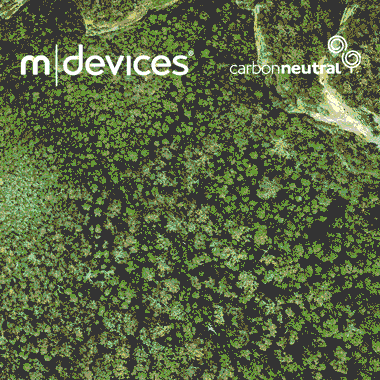Australian news
National Conference on Incontinence (NCOI) 2022
After 2 years of the pandemic, the Continence Foundation of Australia was delighted to be able to host the 30th National Continence on Incontinence (NCOI) face to face from 11–14 May at the Melbourne Convention and Exhibition Centre. We had over 400 attendees for a varied and exceptional program of speakers, workshops and forums.
Conference highlights included the motivating opening address by Australian of the Year, Dylan Alcott, and the presentations by our guest international speaker Dr Sanjay Sinha, Honorary Professor and Consultant Urologist at Apollo Hospitals, Hyderabad, India. A special focus of the conference was on Mental health and impact on continence, a topic illuminated by the insight and clinical experience of four of our esteemed healthcare professionals. Another highlight was the physiotherapists and nurses’ forums which were very popular and provided a unique opportunity for these cohorts to engage in interactive, roundtable case study sessions.
At NCOI the 2022 Carer of the Year Award was presented to Joanne McGee from South Australia. Joanne has been the sole carer for her husband since 1976 after a truck accident resulted in him sustaining C5 tetraplegia ASIA Impairment Scale A 3 months after they were married. Joanne took her husband home from the rehabilitation centre and decided to just get on with living the best life they could, which they continue to do to this day some 45 years later.
Caring for people with incontinence presents several challenges, including physical, mental, emotional, financial and social consequences. This annual award honours the unpaid continence carers who make such a difference to the quality of life for their loved ones. Joanne McGee receives this award for caring for her husband with a high-level disability with such unwavering devotion to his living a full and dignified life.
The replacement value of unpaid care is estimated at over $1 billion per week, with recent data revealing there are over 2.8 million at-home carers1 looking after the most vulnerable in our society, including approximately 167,710 primary carers who provide daily continence care2. The Continence Foundation is here to support carers navigating these challenges by providing resources, referrals and confidential support.
Continence SMART Care
Our new model of best practice continence care, Continence SMART Care, was also launched at NCOI to a very favourable reception, demonstrating the great need for this and how overdue it is. Presentations were delivered by Dr Joan Ostaszkiewicz, NARI Aged Care Research Program Director, the Foundation’s Project Manager, Matt Clear, and Education Manager, Bronwyn Robinson. We have already had a promising amount of interest from residential aged care providers who are keen to see how this model can be practically implemented. The official launch of the model will be announced later in the year.
World Continence Week
The focus for this year’s World Continence Week (WCW), 20–26 June, is men's health. Men may be reluctant to talk about their health issues and concerns, even though over one million men around Australia live with incontinence. The Continence Foundation of Australia’s National Continence Helpline has recently received a notable increase in calls from young men with incontinence concerns which our campaign aims to address.
Educating men, firstly to be aware that they have a pelvic floor and to learn how to support their pelvic floor health, may help to prevent incontinence issues later in life. It is also important to reaffirm the message that incontinence is not just an older person’s issue, nor is it an inevitable part of ageing. A study of Australian men with urinary incontinence found:
- 50% avoided situations where they could not access a toilet easily.
- 57% intentionally kept accidents secret from those close to them.
- 27% stated they stayed at home as a precautionary measure.
This WCW the Continence Foundation of Australia is also continuing to promote the BINS4Blokes campaign. BINS4Blokes is an Australia-wide awareness and advocacy campaign promoting the installation of incontinence bins in male public toilet facilities. Many male public toilets do not have a disposal bin for men to place their continence products. This leaves men to carry used products with them or feel stressed about how they’ll throw them out. A lack of options stops men with incontinence from going out to exercise, shop and simply enjoy life.
Last year’s campaign saw the installation of incontinence product disposal bins at several major venues including the WACA in Perth, the Melbourne Convention and Exhibition Centre, and many rural and regional locations across Australia.
The Great Dunny Hunt was officially launched on 5 April to raise awareness of the National Public Toilet Map (NPTM) and shine a light on incontinence. This year we asked the Australian public to get involved by going to the map and updating the facilities of their local public toilets. Features available to update included opening times, disabled access, ambulant facilities, baby change, adult change, right and left transfer and MLAK key access (Master Locksmiths Association of Australasia).
We received extensive media coverage and exposure, resulting in over 50,000 visits to the NPTM website and over 17,000 visits to the App. In addition, there were more than 2,600 QR scans to the website from the poster campaign and over 45 media interviews nationally including Channel 7 News, Sunrise, Sydney Morning Herald and Channel 10 national news. This was indeed a very successful campaign and, most importantly, assists people who experience incontinence with the ability to move around the community with confidence.
Education
Our education team is always busy keeping healthcare professionals up to date with the latest information on bladder and bowel continence, with online learning modules and free webinars. The most recent webinar was on incontinence-associated dermatitis, presented by Dr Michelle Barakat-Johnson. You can view all our webinars at continence.org.au/health-professionals/webinar-library
To access the Foundation’s online learning system, go to continencelearning.com/login/index.php
Author(s)
Rowan Cockerell
CEO, Continence Foundation of Australia
References
- Deloitte Access Economics. The value of informal care in 2020. Carers Australia; 2020.
- Australian Bureau of Statistics. Disability, ageing and carers, Australia: summary of findings, 2015 [cited 2022 Feb 3]. Available from: abs.gov.au


